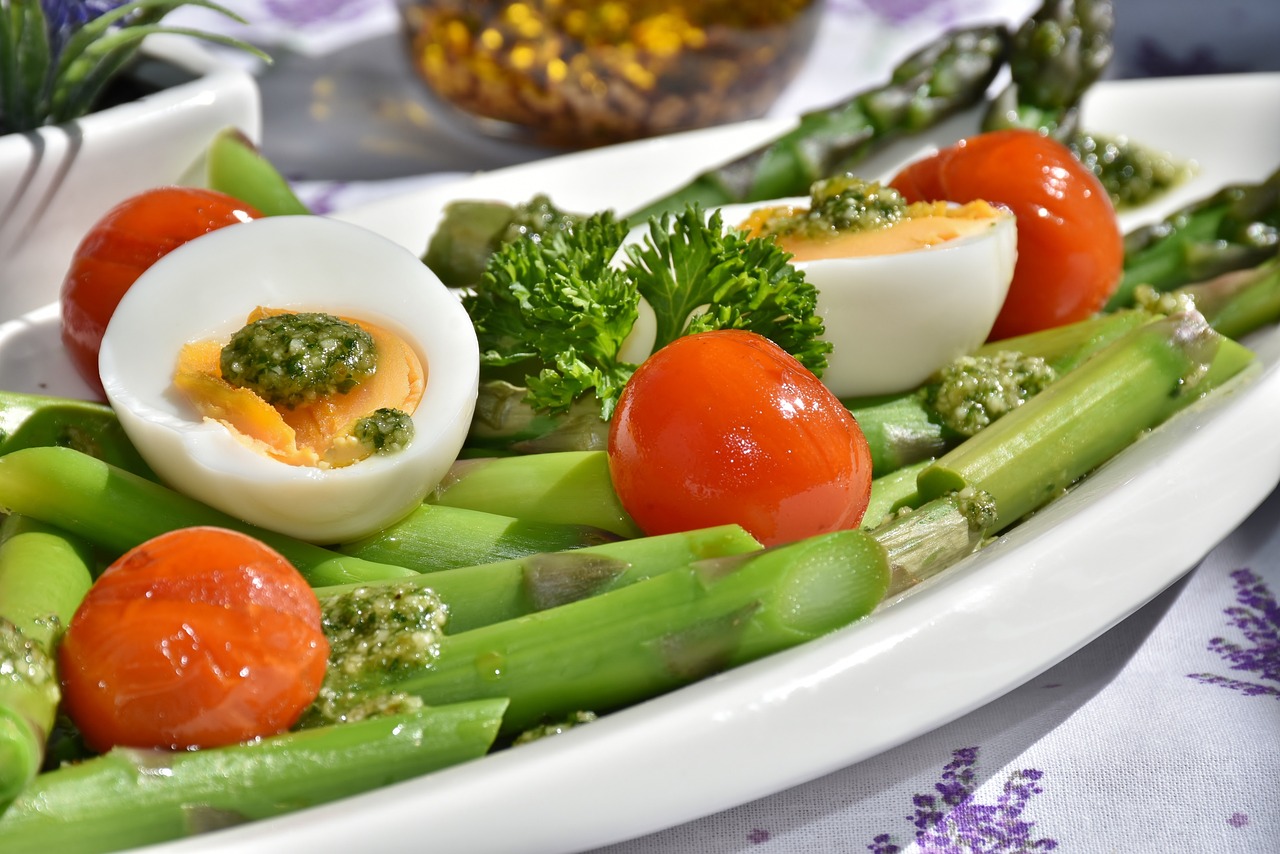A balanced diet plan in pregnancy plays a crucial role in supporting both fetal development and maternal health. Proper nutrition ensures that the baby receives all the necessary nutrients for growth and organ development, which are vital for a healthy pregnancy. A well-rounded diet plan in pregnancy helps in building strong bones, a healthy brain, and a robust immune system for the baby. It also provides the mother with the energy needed to cope with the physical demands of pregnancy, reducing the risk of complications like anemia and gestational diabetes.
Moreover, maintaining a balanced diet during pregnancy can significantly influence birth outcomes. Adequate nutrition lowers the risk of low birth weight and preterm delivery, ensuring a healthier start for the newborn. A carefully planned diet plan in pregnancy not only supports the baby’s development but also enhances the mother’s overall well-being, leading to a smoother pregnancy journey and better postnatal recovery. By focusing on a diet rich in vitamins, minerals, and essential nutrients, expectant mothers can give their babies the best possible start in life.
Key Nutrients to Focus On
Folic Acid
Folic acid plays a crucial role in a diet plan in pregnancy, particularly in preventing neural tube defects in the developing fetus. Neural tube defects, such as spina bifida and anencephaly, are serious conditions that can occur in early pregnancy if the mother doesn’t get enough folic acid. To ensure proper fetal development, it is recommended that women of childbearing age, especially those planning to conceive, include adequate amounts of folic acid in their diet.
A well-balanced diet plan in pregnancy should incorporate sources rich in folic acid, such as leafy green vegetables, fortified cereals, and legumes. These foods provide essential nutrients that support the healthy growth and development of the baby. By prioritizing folic acid-rich foods in their diet, expectant mothers can significantly reduce the risk of neural tube defects and promote a healthier pregnancy outcome.
Iron
Iron is a crucial mineral that plays a vital role in supporting the body’s increased blood volume, especially during periods of rapid growth or pregnancy. It is essential for the production of hemoglobin, the protein in red blood cells that carries oxygen throughout the body. Adequate iron levels help prevent anemia, a condition characterized by fatigue, weakness, and a reduced ability to fight infections. Anemia can significantly impact daily life and overall health, making it important to ensure sufficient iron intake.
Iron can be obtained from various dietary sources, with red meat, spinach, and lentils being some of the most effective options. Red meat, particularly beef and lamb, is rich in heme iron, which is more easily absorbed by the body compared to non-heme iron found in plant-based foods. Spinach and lentils, though plant-based, are excellent sources of non-heme iron and can be particularly beneficial for vegetarians and vegans. Including these foods in a balanced diet can help maintain healthy iron levels and support overall well-being.
Calcium
Calcium plays a vital role in a diet plan in pregnancy, as it is essential for the development of the baby’s bones and teeth. Adequate calcium intake ensures that the growing fetus receives the necessary nutrients for proper skeletal formation. In addition, calcium supports the mother’s bone health, preventing the loss of bone density that can occur due to the increased demands of pregnancy. Incorporating calcium-rich foods into the diet, such as dairy products and fortified plant-based milks, can help meet the daily requirements for both mother and baby.
For pregnant women, it is crucial to include a variety of calcium sources in their diet plan. Dairy products like milk, cheese, and yogurt are excellent sources of calcium, but for those who are lactose intolerant or prefer plant-based options, fortified plant-based milks are a great alternative. Additionally, almonds provide a healthy, calcium-rich snack option that can be easily added to meals or enjoyed on their own. By ensuring a sufficient intake of calcium, expectant mothers can support the healthy growth and development of their baby while maintaining their own bone health during pregnancy.
Protein
A well-balanced diet plan in pregnancy is crucial for the health and development of both the mother and the baby. Protein plays a pivotal role in this diet, as it is essential for the growth of fetal tissues, including the brain and other vital organs. Consuming adequate protein ensures that the baby receives the necessary building blocks for healthy development. Pregnant women should include protein-rich foods such as poultry, fish, tofu, and beans in their daily meals to support this vital growth process.
Incorporating a variety of protein sources into a pregnancy diet plan not only helps meet the increased nutritional demands but also provides essential nutrients that contribute to overall maternal health. For example, poultry and fish offer high-quality protein and are rich in omega-3 fatty acids, which are important for brain development. Tofu and beans, on the other hand, are excellent plant-based options that provide fiber and other essential nutrients, making them a great addition to a balanced diet during pregnancy.
DHA (Omega-3 Fatty Acids)
DHA (Docosahexaenoic Acid), a type of Omega-3 fatty acid, plays a crucial role in the brain and eye development of a growing fetus during pregnancy. Adequate intake of DHA is vital as it supports the formation of the brain’s structure and function, which directly influences cognitive abilities and visual acuity in the child. Ensuring a diet rich in DHA can also help reduce the risk of preterm birth and support a healthy pregnancy. Incorporating DHA-rich foods like fatty fish (such as salmon), flaxseeds, and walnuts into the diet can significantly contribute to the baby’s developmental needs.
A balanced diet plan during pregnancy should prioritize DHA to provide these essential benefits. Pregnant women should aim to consume fatty fish like salmon at least twice a week, which is one of the most potent sources of DHA. For those who prefer plant-based options, flaxseeds and walnuts are excellent alternatives, though they may provide a different form of Omega-3 that the body needs to convert into DHA. Including these foods in daily meals ensures that both the mother and the developing baby receive adequate DHA for optimal brain and eye development.

Sample Daily Diet Plan in pregnancy
Breakfast
Starting your day with a nutritious breakfast sets the tone for a productive day, and this meal offers a balanced combination of flavors and nutrients. Whole-grain toast with avocado provides a hearty base, rich in fiber and healthy fats, helping you feel full and energized. The creamy avocado adds a dose of monounsaturated fats, which are beneficial for heart health, while the whole grains offer sustained energy release throughout the morning.
Complementing the toast is a serving of scrambled eggs, which are packed with high-quality protein to support muscle repair and growth. Eggs also supply essential vitamins and minerals, making them a powerhouse of nutrition. To round out this wholesome meal, a glass of fortified orange juice delivers a burst of vitamin C, along with calcium and vitamin D, which are important for bone health. This combination ensures that you’re starting your day with a meal that fuels both your body and mind.
Mid-Morning Snack
Including a mid-morning snack in your diet plan in pregnancy is essential for maintaining energy levels and providing your baby with the nutrients they need for healthy development. A great option is Greek yogurt with mixed berries. Greek yogurt is rich in protein, which supports the growth of your baby, and it also contains probiotics that promote digestive health. The mixed berries, packed with antioxidants and vitamins, add natural sweetness and a dose of fiber, which can help prevent common pregnancy-related issues like constipation.
Incorporating this snack into your pregnancy diet plan not only satisfies hunger but also offers a balanced mix of nutrients that are crucial during pregnancy. The combination of Greek yogurt and berries ensures you’re getting enough calcium for bone health, as well as essential vitamins like vitamin C from the berries. This simple yet nutritious snack is easy to prepare and can be a delightful addition to your daily routine, keeping both you and your baby healthy and energized throughout the day.
Lunch
For a nutritious and balanced lunch during pregnancy, consider a grilled chicken salad with a variety of fresh vegetables. This meal provides a rich source of lean protein, essential for the growth and development of your baby, while the colorful assortment of veggies offers a wide range of vitamins and minerals. Incorporating quinoa or brown rice into the salad adds fiber and complex carbohydrates, which help maintain steady energy levels throughout the day. This lunch is not only satisfying but also supports a healthy diet plan in pregnancy by ensuring you get the necessary nutrients without unnecessary calories.
Adding a piece of fruit to your lunch further enhances the nutritional value of this meal. Fruits are packed with antioxidants, vitamins, and natural sugars, which can help curb sweet cravings while providing essential nutrients for both mother and baby. Including such wholesome foods in your daily routine is an effective way to follow a balanced diet plan in pregnancy, ensuring that you and your baby receive the proper nourishment needed during this critical time.
Afternoon Snack
Incorporating a balanced diet plan in pregnancy is crucial for the health of both the mother and the baby. One excellent choice for an afternoon snack is a handful of nuts and dried fruits. This combination provides essential nutrients like healthy fats, protein, and fiber, which are beneficial for managing hunger and supporting overall well-being. Nuts are rich in omega-3 fatty acids and vitamins, while dried fruits offer a natural source of energy and iron, which is important during pregnancy.
Adding a handful of nuts and dried fruits to your diet plan in pregnancy not only helps maintain energy levels but also contributes to a more satisfying and nutritious snack option. This simple yet effective choice can be easily incorporated into daily routines, ensuring that you meet your nutritional needs while enjoying a tasty and healthful treat. Always remember to choose unsweetened dried fruits and moderate your intake of nuts to avoid excessive calorie consumption.
Dinner
For a balanced diet plan in pregnancy, consider incorporating a nutritious and delicious dinner that includes baked salmon, steamed broccoli, and carrots, along with sweet potato. Baked salmon is a rich source of omega-3 fatty acids, which are essential for the development of the baby’s brain and eyes. Paired with steamed broccoli and carrots, this meal provides essential vitamins and minerals, including vitamin C and fiber, which are important for both maternal health and fetal development.
Sweet potato adds a touch of natural sweetness and is packed with beta-carotene, which supports the immune system and promotes healthy skin. This well-rounded meal is not only satisfying but also supports the dietary needs of pregnant women. Following a well-balanced diet plan in pregnancy ensures that both mother and baby receive the necessary nutrients for optimal health and development.
Foods to Limit or Avoid
When crafting a diet plan in pregnancy, it’s crucial to consider foods that should be limited or avoided to ensure both maternal and fetal health. High-mercury fish, such as swordfish and king mackerel, should be avoided due to the risk of mercury exposure, which can adversely affect fetal development. Similarly, unpasteurized products pose a risk of listeria infection, which can lead to serious complications. It is also advisable to avoid undercooked or raw foods, as these can harbor bacteria that may cause foodborne illnesses.
Another important aspect of a healthy diet plan in pregnancy is managing caffeine and alcohol intake. Excessive caffeine consumption should be limited to no more than 200 mg per day to avoid potential adverse effects on fetal development. Additionally, alcohol should be completely avoided, as there is no known safe amount during pregnancy. By adhering to these dietary guidelines, expectant mothers can better support their health and the well-being of their developing baby.
Hydration Matters
Hydration Matters: Aim for at least 8-10 glasses of water daily. Proper hydration is crucial for overall health and plays a significant role in nutrient transport, which is particularly important when following a diet plan in pregnancy. Adequate water intake helps ensure that essential nutrients are efficiently delivered to both mother and baby, supporting a healthy pregnancy.
In addition to its role in nutrient transport, staying well-hydrated can alleviate common pregnancy discomforts such as constipation and swelling. When incorporating a diet plan in pregnancy, remember to prioritize hydration alongside balanced nutrition. By doing so, you can enhance your well-being and contribute to a smoother, more comfortable pregnancy journey.
Conclusion
Adhering to a nutritious diet in pregnancy not only ensures the well-being of the mother but also lays the foundation for the baby’s lifelong health. A well-structured diet plan in pregnancy is crucial for providing the essential nutrients required for both the mother’s and baby’s growth. Making informed food choices helps in managing weight gain, reducing the risk of pregnancy complications, and supporting the baby’s development. Staying hydrated is equally important as it aids in digestion and supports the increased blood volume during pregnancy.
Furthermore, seeking professional guidance is vital to tailor a personalized diet plan in pregnancy that meets individual needs and addresses any specific health concerns. Nutritional experts can help create a balanced meal plan that includes all the necessary vitamins and minerals, ensuring that both mother and baby receive optimal nourishment. By following a carefully designed diet plan, mothers can enjoy a smoother, healthier pregnancy and contribute to their baby’s long-term health and well-being.
FAQ
Why is a diet plan important during pregnancy?
A diet plan during pregnancy is crucial for ensuring both the mother and the developing baby receive essential nutrients. It helps manage weight gain, prevent complications, and support the overall health of both mother and child.
What are the key nutrients needed in a pregnancy diet plan?
Key nutrients include folic acid, iron, calcium, protein, and vitamins A, C, and D. These nutrients support fetal development, maternal health, and the prevention of birth defects.
What foods should be included in a pregnancy diet plan?
Include a variety of fruits, vegetables, whole grains, lean proteins, and dairy products. Foods rich in iron, calcium, and omega-3 fatty acids are especially beneficial.
Are there any foods to avoid during pregnancy?
Yes, pregnant women should avoid raw or undercooked meats, eggs, and seafood due to the risk of foodborne illnesses. Limit caffeine and avoid alcohol and certain high-mercury fish.
What are some healthy snacks for pregnant women?
Healthy snacks include fruits, nuts, yogurt, whole-grain crackers with cheese, and vegetables with hummus. These options provide essential nutrients and help maintain energy levels.

